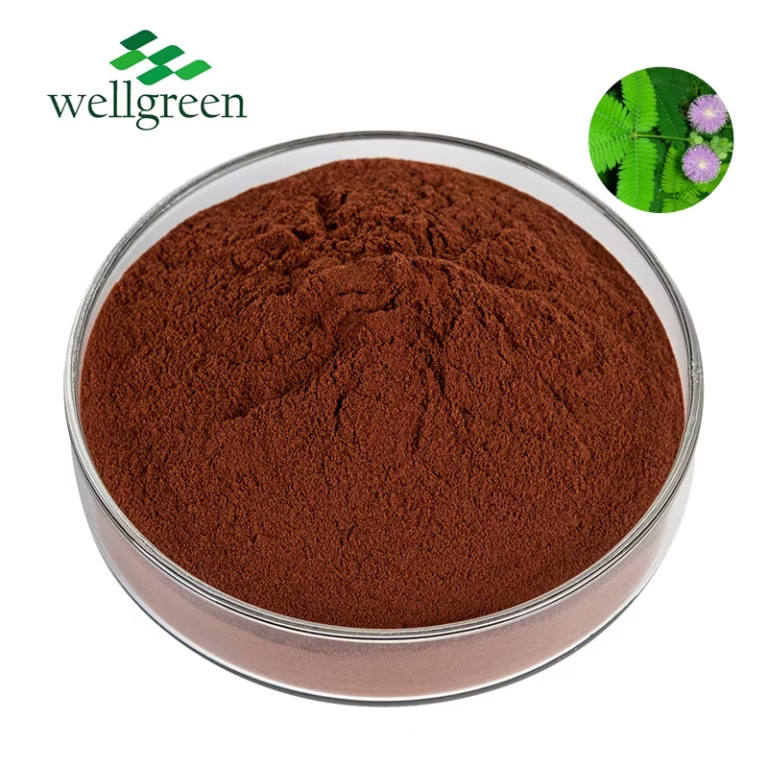
The root of this Amazonian plant, commonly known as quebracho blanco, have been utilized for time immemorial in folk medicine across South America.
Ethnobotanical studies demonstrate the power of M. tenuiflora extracts in treating a wide range of ailments, including infections.
Traditional healers employ the extract in diverse forms such as tinctures to alleviate illnesses.
Some key properties of M. tenuiflora contain astringent effects, and it is also believed to possess anti-inflammatory properties.
Phytochemical Analysis Mimosa tenuiflora Root Bark Extracts
This study focuses on investigating the phytochemical profile of Mimosa tenuiflora root bark extracts. The isolation methods employed involved multiple solvents, including water. The resultant extracts were then subjected to a battery of analytical techniques such as high-performance liquid chromatography (HPLC) to detect the predominant phytochemical molecules. Preliminary results reveal the occurrence of a range of secondary metabolites, including flavonoids, which are known for their therapeutic properties. This comprehensive phytochemical analysis aims to provide valuable insights into the potential of Mimosa tenuiflora root bark as a source of herbal remedies.
Traditional Uses and Potential Medicinal Benefits of M. tenuiflora Root Bark
M. tenuiflora, a species renowned for its remarkable root bark, has been used in traditional medicinal practices for generations. Indigenous tribes have long understood the therapeutic properties of this potent ingredient. The root bark is customarily processed and consumed to treat a spectrum of ailments, including infections.
Contemporary research is initiating to explore the promise of M. tenuiflora root bark in delivering medicinal benefits. Studies have indicated that certain elements present in the bark may possess anti-inflammatory properties, affecting its potential to fight a diverse array of diseases. Furthermore, preliminary research suggests that M. tenuiflora root bark may also possess cognitive-enhancing effects, though more comprehensive studies are required to substantiate these findings.
Pharmacological Activity of Mimosa tenuiflora: A Review of Root Bark Studies
Mimosa tenuiflora, commonly known the jurema shrub, has a profound history of folk medicinal practice in South America. The root bark of this variety is particularly regarded for its diverse pharmacological properties. Numerous studies have explored the potential benefits of M. tenuiflora root bark, revealing a range of constituents with noteworthy biological potency.
- One aspect of particular focus is the anti-inflammatory capability of M. tenuiflora root bark extracts.
- Initial evidence suggests that these preparations may modulate the immune response, potentially providing comfort from multiple inflammatory disorders.
- Furthermore, studies have indicated that M. tenuiflora root bark may possess cellular protective characteristics, which could offer benefits to human health by reducing oxidative injury.
The diverse nature of M. tenuiflora root bark ingredients and its capabilities for therapeutic treatments warrant further exploration. As research continues, a more comprehensive understanding of the pharmacological activity of M. tenuiflora root bark may emerge, potentially leading to the development of novel and effective healthcare interventions.
Isolation and Characterization of Bioactive Compounds from *M. tenuiflora* Root Bark
This research focuses on the isolation of pharmaceutically active compounds from the root bark of *M. tenuiflora*. Several extraction methods, such as aqueous solutions, will be utilized to purify a variety of extracts. The analysis of these extracts will involve assays like spectroscopy and molecular characterization. The pharmacological properties of the isolated molecules will also be assessed using cellular systems.
The objective of this research is to identify and read more characterize potent substances from *M. tenuiflora* root bark with potential applications in healthcare.
Exploring the Anti-inflammatory and Antioxidant Properties of Mimosa tenuiflora Root Bark
Mimosa tenuiflora, commonly known as the Horse tree, is a species native to arid regions. Recent research has focused on its {potentialbenefits for human health, particularly concerning its anti-inflammatory and antioxidant properties. The root bark of Mimosa tenuiflora is a rich reservoir of bioactive molecules such as flavonoids, which have been shown to exert potent actions against oxidative stress.
- Studies have demonstrated that extracts from Mimosa tenuiflora root bark can effectively reduce the production of inflammatory cytokines in both *in vitro* and *in vivo* models.
- Furthermore, these extracts have exhibited notable antioxidant effects by eliminating harmful free radicals, protecting cells from oxidative stress.
These findings suggest that Mimosa tenuiflora root bark holds promise as a {naturalsupplement for various inflammatory and oxidative stress-related conditions. However, further research is needed to fully elucidate its mechanisms of action and optimize its therapeutic use.
